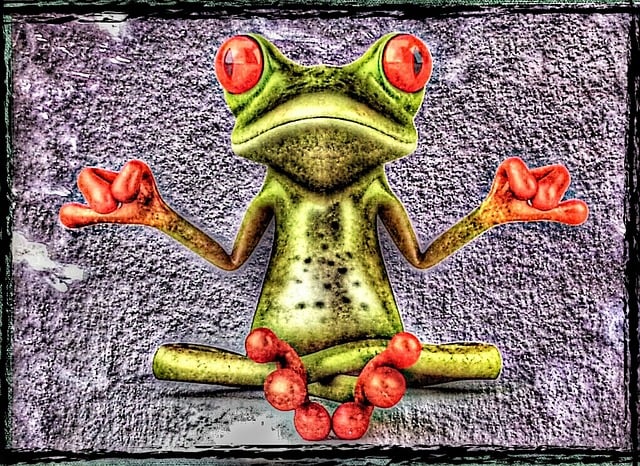Stress relief therapy is a powerful tool for managing chronic stress and improving mental well-being. It offers tailored coping strategies through evidence-based techniques like CBT and mindfulness, helping individuals understand and tackle stress triggers. Diverse approaches, including CBT, MBSR, yoga, meditation, and biofeedback, cater to personal preferences and needs. Incorporating relaxation practices enhances awareness, decision-making, and overall resilience against stress's negative impacts on mental and physical health. Creating a personalized action plan, combining mindfulness, activity, hobbies, and time management, ensures proactive stress management leading to lasting therapy benefits.
Stress management counseling is an essential tool in navigating today’s demanding world. This comprehensive guide explores effective strategies to combat chronic stress and its impact on mental well-being. We delve into various therapeutic approaches, from cognitive-behavioral therapy to mindfulness practices, empowering individuals to find lasting relief. Learn how to choose the right counseling method, incorporate relaxation techniques, and create a personalized plan for a more balanced life. Discover the transformative power of stress relief therapy and reclaim your peace.
Understanding Stress and Its Impact on Mental Health

Stress is an inevitable part of life, but chronic and excessive stress can significantly impact mental health. It’s essential to understand that stress isn’t always negative; acute or short-term stress can be a healthy response, helping individuals focus and react to challenges. However, when stress becomes persistent and overwhelming, it can lead to various mental health issues such as anxiety, depression, and even physical ailments. This is where stress relief therapy steps in as a powerful tool for managing and mitigating these effects.
Stress management counseling, or stress relief therapy, provides individuals with the skills and strategies needed to recognize and cope with stressful situations effectively. Through psychotherapy, cognitive behavioral techniques, mindfulness practices, and other evidence-based methods, this form of therapy helps clients understand their unique stressors, develop healthier coping mechanisms, and enhance overall well-being. By addressing underlying issues and promoting resilience, stress relief therapy enables individuals to navigate life’s challenges with greater ease, fostering better mental health outcomes.
The Role of Therapy in Managing Chronic Stress

Stress relief therapy plays a pivotal role in managing chronic stress, offering individuals a safe and supportive space to explore and address its underlying causes. Through various therapeutic techniques, such as cognitive-behavioural therapy (CBT), mindfulness practices, and emotional support, counselling sessions empower clients to develop effective coping strategies. CBT, for instance, helps individuals identify and challenge negative thought patterns contributing to stress while teaching them realistic problem-solving skills. Mindfulness practices promote present-moment awareness, enabling people to detach from stressful thoughts and cultivate a sense of calm.
In addition, therapy provides an opportunity for profound self-discovery and personal growth. By delving into past experiences, relationships, and environmental factors that may be triggering stress responses, individuals gain valuable insights into their unique stressors. This introspective process facilitates healthier ways of interacting with challenging situations, fostering resilience and a greater sense of control over one’s emotional well-being.
Different Types of Stress Relief Therapies Available

Stress management counseling offers a multitude of therapeutic approaches, each tailored to address unique stress relief needs. Among the popular methods are cognitive-behavioral therapy (CBT), which focuses on identifying and changing negative thought patterns and behaviors contributing to stress. Another effective approach is mindfulness-based stress reduction (MBSR), teaching individuals to stay present and non-judgmentally aware of their thoughts and feelings, thereby cultivating a sense of calm.
Additionally, various alternative therapies like yoga, meditation, and biofeedback serve as powerful tools for stress relief. Yoga combines physical postures, breathing exercises, and meditation to promote relaxation and mental clarity. Meditation practices encourage focused attention on the breath or specific objects, fostering inner peace and reducing stress levels. Biofeedback techniques help individuals gain control over bodily functions, such as heart rate and muscle tension, thereby enhancing their ability to manage stress responses effectively.
How to Choose the Right Stress Management Counseling Approach

Choosing the right stress management counseling approach is essential for effective stress relief therapy. It’s crucial to consider your personal preferences, the nature of your stress, and the guidance of a qualified professional. Some popular methods include cognitive-behavioral therapy (CBT), mindfulness-based practices, and solution-focused brief therapy (SFBT). CBT helps identify and change negative thought patterns contributing to stress, while mindfulness teaches present-moment awareness to reduce reactivity. SFBT focuses on finding solutions to specific stressors.
When selecting a counseling approach, explore different techniques to see what resonates best. Discuss your options with a therapist who can assess your needs and tailor the process accordingly. Remember, there’s no one-size-fits-all solution for stress management, so taking the time to find the right fit is key to achieving lasting peace of mind and improved well-being.
Benefits of Incorporating Mindfulness and Relaxation Techniques

Incorporating mindfulness and relaxation techniques into stress management counseling offers a multitude of benefits. These practices empower individuals to develop a deeper sense of awareness, enabling them to recognize and respond to stressful triggers more effectively. By fostering a state of calm and presence, mindfulness allows for clearer thinking and better decision-making, which are essential in navigating life’s challenges without resorting to unhealthy coping mechanisms.
Stress relief therapy through mindfulness and relaxation can significantly reduce the negative impact of chronic stress on both mental and physical health. It helps lower blood pressure, improve sleep quality, enhance emotional well-being, and boost overall resilience. Moreover, these techniques promote self-compassion, enabling individuals to approach themselves with kindness and understanding during stressful times, thereby enhancing their ability to manage and overcome stress effectively.
Creating a Personalized Action Plan for Lasting Stress Relief

Creating a personalized action plan is a powerful tool in stress management counseling, as it empowers individuals to take control of their mental well-being. This tailored strategy involves identifying specific triggers and developing targeted coping mechanisms. During therapy sessions, counselors guide clients to pinpoint areas where they experience chronic stress, whether at work, home, or within personal relationships.
Once identified, the next step is to set achievable goals for stress relief. These may include incorporating mindfulness practices, such as meditation or deep breathing exercises, into daily routines. Additionally, the plan might suggest scheduling regular physical activity, engaging in hobbies, or establishing clear boundaries to manage time effectively. By combining these strategies, individuals can develop a holistic approach to stress management, leading to lasting therapy benefits and improved overall mental health.
